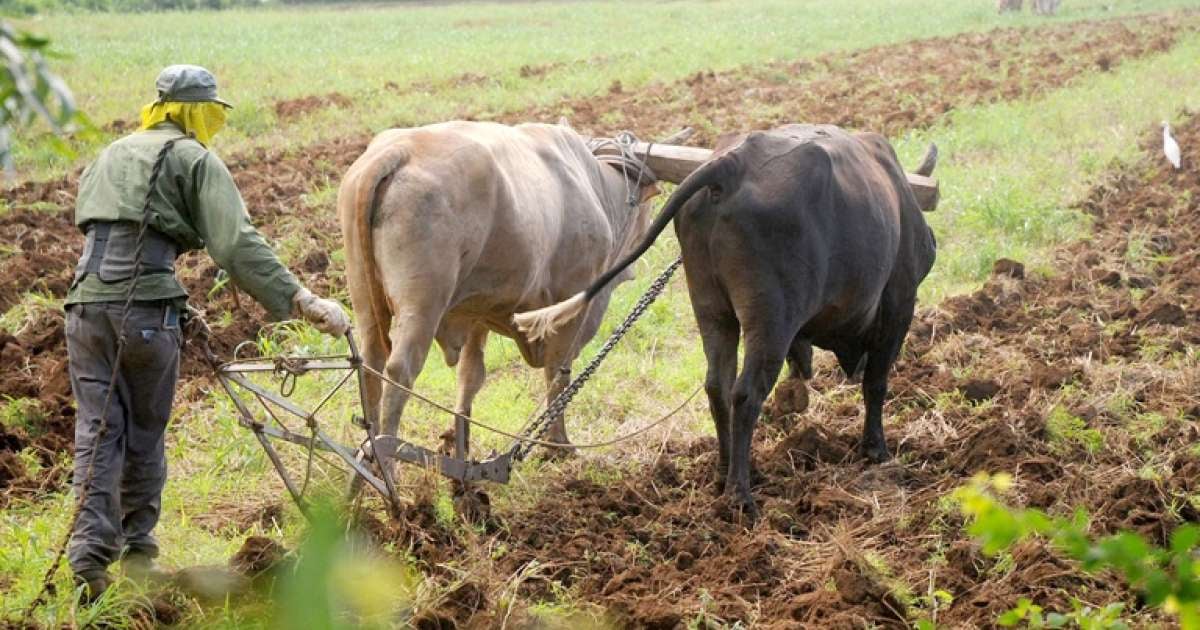
The Cuban government revoked usufruct rights to land for 137 farmers in Ciego de Ávila, justifying the measure by citing alleged "repeated violations of current legislation," as stated during a meeting led by Salvador Valdés Mesa, Vice President of the Republic.
This decision comes at a critical time for the country's agricultural production, marked by significant noncompliance with food delivery plans and an escalating crisis in the agricultural sector.
According to a report from the Cuban News Agency, during the meeting, Valdés Mesa noted that livestock farming in the province is "out of control," accusing a group of producers of diverting milk to non-state markets and regulatory entities of allowing these irregularities through a tolerant and permissive management approach.
This situation coincides with a deficit of 500,000 liters of milk in the province's annual plan, a result that reflects both a shortage of supplies and structural disorganization within the production system.
The withdrawal of land affects farmers who, in many cases, work under adverse conditions, facing shortages of resources, machinery, and state support.
Meanwhile, the authorities demand "greater efforts" to meet production plans, without providing concrete solutions to the shortages that are choking the sector.
Instead of addressing the needs of producers, the government prioritizes punitive control, which jeopardizes the food security of the population and increases pressure on small farmers.
Despite announcements of a 42% increase in the cold season campaign compared to the last ten years, delays in essential crops such as root vegetables and rustic products (bananas, cassava, sweet potatoes, and taro) call into question the stated objectives.
Valdés Mesa emphasized the need to industrialize cassava for the production of flours and other derivatives, highlighting its importance in import substitution.
However, he acknowledged that the installed capacity in Ciego de Ávila only allows for the processing of three tons per day, far from the projected 300 tons, highlighting a significant gap between the objectives and the reality of the system.
The situation in Ciego de Ávila also reflects the challenges facing the sugar industry, which is preparing for a limited harvest. Only the Ciro Redondo mill is expected to operate, facing issues with machinery, biomass supply, and fuel—factors that could halt operations for several days.
In September, the Cuban government imposed new restrictions on housing construction on land granted for usufruct, in an effort to address what it describes as "irregularities in constructions on agricultural land."
According to Decree 105 from the Council of Ministers, published in Official Gazette number 92 on September 23, the modifications primarily affect farmers who received land parcels for usufruct and who had built homes or made construction improvements.
The new decree modifies Decree 350, which regulates Decree-Law 358 regarding the allocation of idle state lands for usufruct.
From now on, the construction of housing will not be permitted on several categories of land, including those located within urban perimeters, land designated for territorial and urban planning, land intended for family self-sufficiency, and land with environmental, defense, or national security considerations.
In the past, a Cuban farmer reported that the island's government had denied him the right to use state-owned land in the province of Holguín, despite his intentions to utilize it for food production that would benefit the population.
In statements to the independent media outlet CubaNet, Alexander Hidalgo Aguilera expressed regret that this occurred while the country is facing a quite serious food crisis.
Filed under: